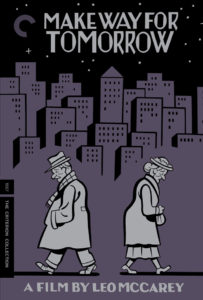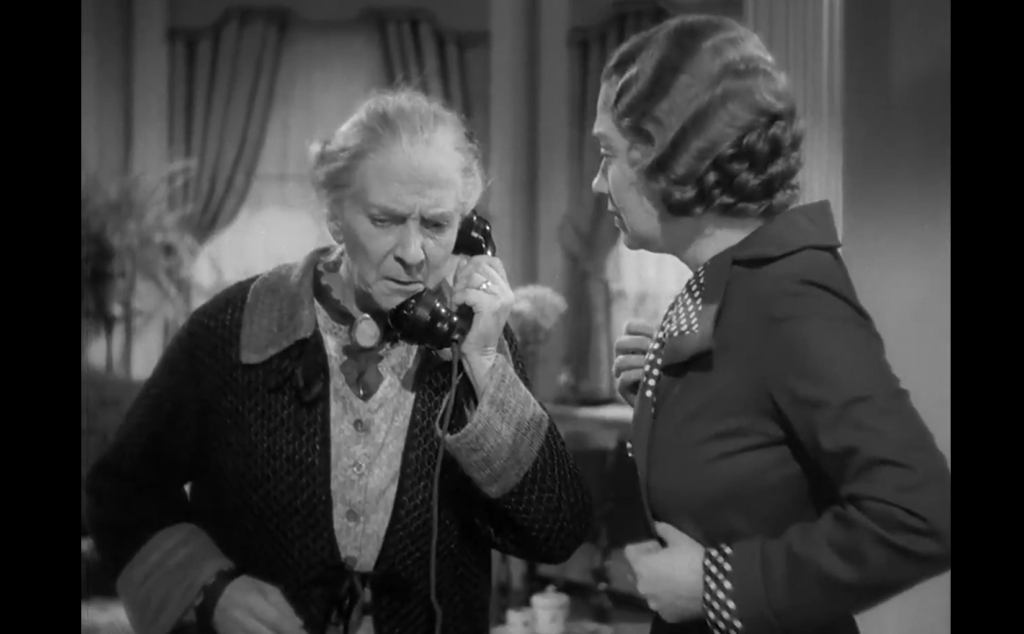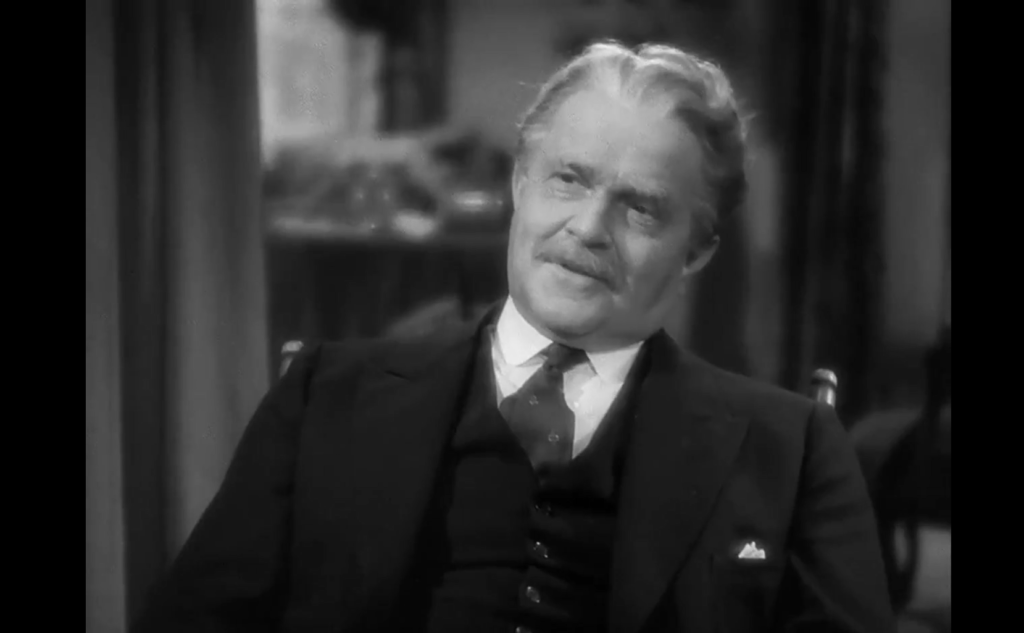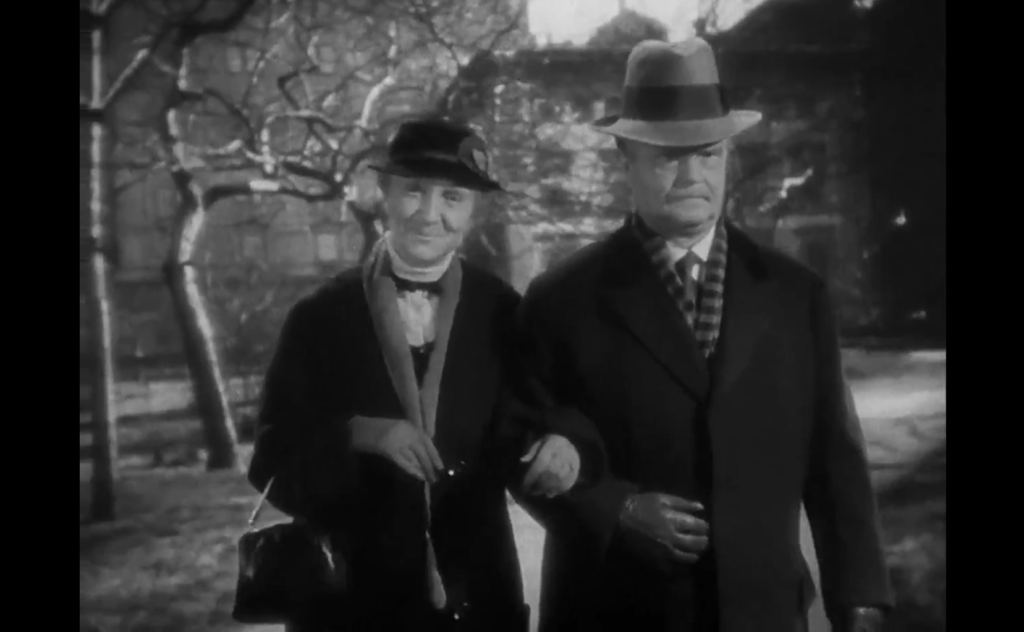“Two old-fashioneds — for two old-fashioned people.”
|

Synopsis:
An elderly couple with financial problems (Beulah Bondi and Victor Moore) are forced to move into separate homes with their grown children.
|
|
Genres, Themes, Actors, and Directors:
- Beulah Bondi Films
- Elderly People
- Fay Bainter Films
- Grown Children
- Leo McCarey Films
- Thomas Mitchell Films
Response to Peary’s Review:
As Peary notes, this “poignant classic” — reminiscent of Yasujiro Ozu’s Tokyo Story (1953) — is “beautifully acted” by its lead protagonists (Bondi and Moore, just 49 and 61 years old at the time of filming) and “sensitively directed by Leo McCarey”. It ultimately makes a “good argument for Social Security”, given that it portrays its aged protagonists as “good parents and good citizens” who “find themselves obsolete in modern America”. While it’s heartbreaking to watch Moore and Bondi “find themselves a burden” and ultimately “realize that they won’t be able to stay together,” McCarey doesn’t demonize their grown children; instead, he makes it easy to empathize with their dilemmas as well. The problem here isn’t family values — it’s the harsh economic reality of the time, a situation which unfortunately hasn’t improved all that much since then.
Redeeming Qualities and Moments:
- Beulah Bondi as Lucy Cooper

- Victor Moore as Barkley Cooper

- One of the most authentic portrayals of problems associated with aging

Must See?
Yes; this one should be seen by all film fanatics.
Categories
(Listed in 1001 Movies You Must See Before You Die)
Links:
|




One thought on “Make Way For Tomorrow (1937)”
First viewing. I wholeheartedly agree with the comment that ‘MWFT’ is “one of the most authentic portrayals of problems associated with aging.” The film’s premise is indeed an admirable one – so I would probably suggest that having a look at it isn’t a total waste. But I don’t think I can go so far as to call it a must. For me, the premise tends to break down under the weight of the film’s particulars.
I wouldn’t say that the main issue in the film is “the harsh economic reality of the time.” And it seems to me as well that the script *does* demonize the elderly couple’s children. (In fact, near the end of the film, Thomas Mitchell – the “favorite child” – even demonizes himself when he’s done nothing particularly wrong.) Economy notwithstanding, there’s little reason for the children (Mitchell aside) to behave as such clods.
But the film’s problems don’t end there. Apparently to point up the fact that Moore and Bondi are old, we get tons of inconsequential dialogue to highlight that. As well, in one extended sequence involving Bondi being left alone at night, her character appears oddly passive-aggressive and we begin losing sympathy for her. In another extended sequence, in which he is being taken care of while having a cold, Moore inexplicably becomes surly – when it might make more sense to raise hell against the a-hole daughter who is not tending to his needs at all.
I suppose, overall, I’m ambivalent about the film due to its somewhat inconsistent tone. I just don’t like it – nor does it seem appropriate. As directed by Leo McCarey (who generally seems to me to put his audiences first), there’s an unsettling amount of pandering in this picture – and I think I’d appreciate the film more if it were hard-hitting instead of heavy-handed.
At any rate, as noted, it seems likely the film in part inspired Ozu’s 1953 masterpiece ‘Tokyo Story’.
Note: for me, the one who runs away with this film is Maurice Moscovitch, as Moore’s friend Max Rubens; he brings a real dignity to his role – and perhaps my favorite moment in the movie is when he defends his wife’s cooking (in response to the aforementioned a-hole daughter).